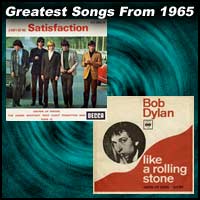


Another track from the aborted Lifehouse project, the song’s arrangement encapsulates the many rich musical sides of the Who. But as with anything Townshend writes, “Getting in Tune” was hardly about nothing it’s fraught with deep, complicated messages. “I can’t pretend there’s any meaning hidden in the things I’m saying,” sings a pensive Daltrey at the start of this Who’s Next track. Image Credit: Gijsbert Hanekroot/Redferns/Getty Townshend played it acoustic at Meher Baba gatherings, and the Who’s live performances of the song were overpowering – “an elephant,” said Townshend, that “finally stampeded itself to death on stages around England.” “The Seeker” was an underperformer on the pop charts, but it remained a potent statement. But the sound mix roared, and it became the first single the Who released after the triumph of Tommy. “We’re looking at each other,” he concludes, “and we don’t know what to do.” Unusually, the band self-produced the track, as producer Kit Lambert was laid up with a broken jaw. Quite loosely,” he once said, “‘The Seeker’ what I call Divine Desperation.” In lyrics predicting John Lennon’s “God” (released later that year), Daltrey name-checks the Beatles, “Bobby Dylan” and Timothy Leary, but none of them have the answers he needs. tour, in a “mosquito-ridden swamp at three in the morning, drunk out of my brain …. This anthem of spiritual questing wasn’t born in an ashram Townshend wrote it during a night of hard partying during a U.S. Producer Jon Astley said that Townshend “turned up with this very long demo of the track … with all this stuff happening on it.” Astley got to work cutting five minutes out of the song, and the end result became a Top 20 hit in America and the U.K., proof that the Who weren’t done just yet. Falling on his knees at the feet of drummer Paul Cook, he told the young punk musician, “Rock has gone down the fuckin’ tubes.” The incident planted the seed for a high-powered song that Townshend called “an encyclopedia for up-and-coming groups about how not to get caught.” Finishing “Who Are You” required some effort. “I was trying to sort out who, where, what God was.” He wrote it after a contentious business meeting about unpaid royalties devolved into a drunken spree, during which Townshend ran into two members of the Sex Pistols in a club called the Speakeasy. “It’s actually a prayer,” Townshend said later. One of the last great lionhearted Who anthems, “Who Are You” summed up Townshend’s disillusion with where rock had gone during the late Seventies, and his desire to find authenticity amid the malaise.


 0 kommentar(er)
0 kommentar(er)
